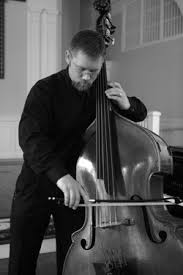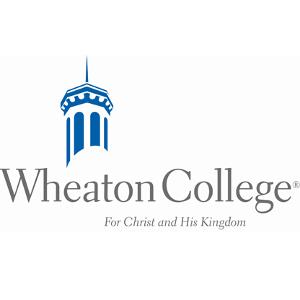- State: Illinois
- Private School
- School Website
- Map Link
Andrew Anderson, bass faculty
General Statistics
- US News Ranking: #62 (tie) in National Liberal Arts Colleges
- US News Overall Score (out of 100): 32
- Tuition & Fees 2016-17: $34,050
- Room & Board 2016-17: $9,560
- Total Enrollment: 2,929
- Acceptance Rate (from 2015): 71%
- Student – Faculty Ratio: 12:1
- 4 year graduation rate: 81%
- % of undergrads receiving Financial aid: 54%
- Average Financial Aid: $21,380
Double Bass Statistics
- Average number of undergraduate bass students: 3
- Studio Class, Orchestral Repertoire Class, Bass Ensembles
What Alumni Are Doing
- Students have gone on to Freelance around Chicago and continue their education at other colleges.
Perspectives from Students and Alumni
Q: What are some favorite memories about studying at this school?
A: Many of my favorite Wheaton memories center around the rich relationships I formed throughout my college career. My classmates and professors were engaging, encouraging, and continually challenged me to grow, both academically and spiritually. Likewise, my coursework equipped me to better ask and begin to answer questions about faith and reason, about theory and practice, and to better discern my own vocational path as a follower of Christ.
As a double bassist, the Conservatory of Music provided me with a host of performance opportunities and top-notch instruction. Wheaton’s bass faculty are excellent, both as musicians and as mentors, and their encouragement and instruction were invaluable to me as a student. I enjoyed performing in a number of student groups and ensembles, including the Symphony Orchestra, Concert Band, and Jazz Ensemble. One of the highlights of my Wheaton career was performing Haydn’s “The Creation” under Maestro John Nelson (also a Wheaton alum) with full orchestra and combined choirs. Overall, it was great having so many outlets for classical, jazz, gospel, acoustic, and rock music on-campus, and this variety helped to broaden my musical palate and proficiency as well as to foster new friendships with other musicians.
Q: How did this school help prepare you for your future endeavors?
A: ]Studying at Wheaton expanded and diversified my thinking, making me better equipped to adapt to new fields of work and study. Wheaton’s liberal arts curriculum also allowed me to explore my varied interests in philosophy, economics, and music, which have helped to differentiate me as both a critical and a creative thinker. I left college well equipped, not only to find work after school, but also to continue learning and growing wherever I find myself.
Q: What advice would you offer others thinking about studying at this school?
A: Schedule a visit! I have never felt more welcomed than I have at Wheaton College, and I would encourage anyone considering applying to stop by campus during Wheaton Connection or for a campus tour. Check out the vibe on campus, and see if it feels right for you.
Q: Is there anything else you’d like to share about this school?
A: When I was researching colleges my parents encouraged me to look at the kinds of people coming out of each school, not just those going in. Wheaton definitely stood out by that criterion. An education can be so much more than just a degree, and I believe that Wheaton equips its students well for their broader vocational journeys as employees, employers, family members, and artists for Christ and His Kingdom.
Gunnar K
Perspectives from the Bass Faculty
Q: What are some of your favorite experiences teaching at your school?
A: I have enjoyed helping students preparing auditions in our audition class for festivals, professional job opportunities, and competitions. Our studio is intimate and personal. There is good collaboration among our bassists and countless chances to interact with other students and faculty from sight reading parties to composition recitals and chamber music classes.
About The Bass Faculty
 Andrew Anderson performs in nearly 150 concerts every year. Andrew Anderson is a member of the Grant Park Symphony Orchestra and the Lyric Opera of Chicago Orchestra, the Chicago Philharmonic, and performs regularly with Music of the Baroque. He has performed with the Minnesota Orchestra, Detroit Symphony, Fort Worth Symphony, Columbus Symphony, American Ballet Theater, and New World Symphony. He has held positions in twelve different orchestras across seven states, serving as principal bass in four of them.
Andrew Anderson performs in nearly 150 concerts every year. Andrew Anderson is a member of the Grant Park Symphony Orchestra and the Lyric Opera of Chicago Orchestra, the Chicago Philharmonic, and performs regularly with Music of the Baroque. He has performed with the Minnesota Orchestra, Detroit Symphony, Fort Worth Symphony, Columbus Symphony, American Ballet Theater, and New World Symphony. He has held positions in twelve different orchestras across seven states, serving as principal bass in four of them.
Andrew enjoys teaching positions at the Chicago College of Performing Arts at Roosevelt University and The Wheaton Conservatory in addition to his private studios in Northwest Indiana. Andrew has taught and performed at the Masterworks Festival for the past two summers, and has presented at the Chicago Bass Festival every year since its inception.
Information on Andrew’s studios can be found at: andersonbassworks.com
Andrew has a Bachelor of Music Degree from the University of Michigan, a Master of Music Degree from Indiana University, and served as a doctoral teaching fellow at the University of North Texas. Andrew’s teachers include Stuart Sankey, Lawrence Hurst, Jeff Bradetich, Larry Zgonc, Bill Clay, Steve Molina, and his father Dave Anderson. Andrew studied string pedagogy with Robert Culver at the University of Michigan, and low string pedagogy at Indiana University with Helga Winolt.
Andrew often appears as a sectional coach at DePaul University, the Elgin Youth Symphony, the Chicago Youth Symphony, and for nearly a decade was a coach for the Elgin Youth Symphony’s Chamber Music Institute.
Bass News Right To Your Inbox!
Subscribe to get our weekly newsletter covering the double bass world.

